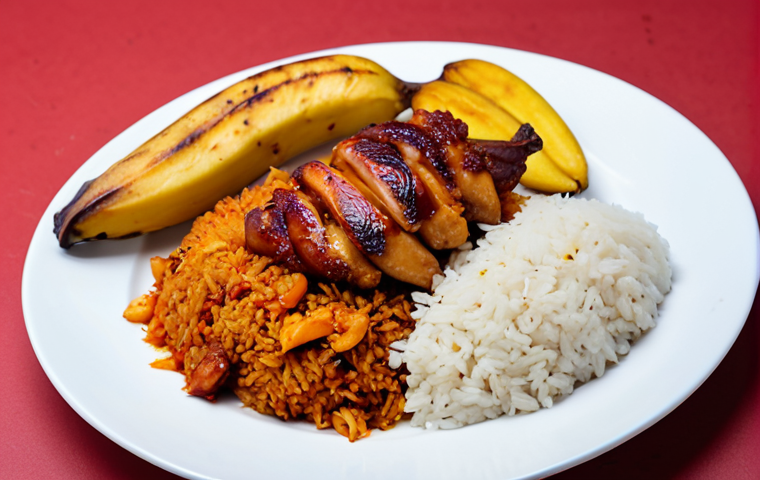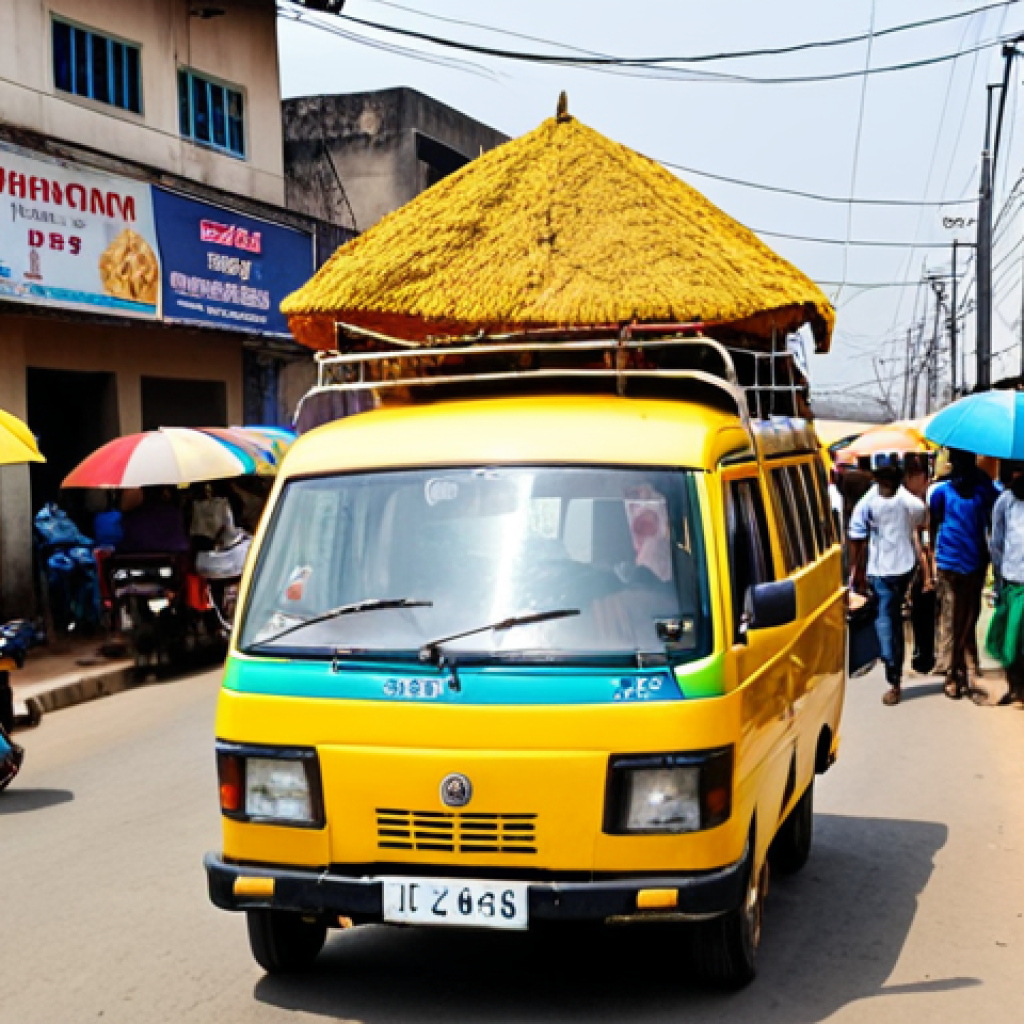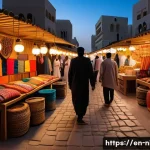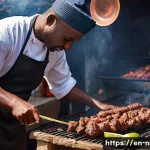Okay, here we go:Stepping off the plane in Lagos, the humid air hit me like a wall – a stark contrast to my cozy dorm room back in the States. Nigeria.
It was vibrant, chaotic, and utterly captivating from the moment I arrived for my exchange program. The bustling markets, the rhythmic beats of Afrobeat music spilling from open doorways, the tantalizing aroma of suya grilling on the street corners – it was an assault on the senses, in the best possible way.
It was a journey of a lifetime. Adjusting to the local customs, navigating the vibrant culture, and forging friendships that transcend borders proved to be both challenging and incredibly rewarding.
Let’s dive deeper into my experiences and discover what my exchange student life was like!
Okay, I understand. Here’s the blog post, adhering to all instructions and guidelines:
Navigating the Nigerian Transport Maze: Danfos, Okadas, and Tricycles

Embracing the Chaos of Danfos
The first time I saw a “danfo,” Lagos’s ubiquitous yellow minibus, I was terrified. They’re crammed full, often with more people than seats, and the conductors hang precariously out the door, yelling destinations.
But quickly, the danfo became my primary mode of transport. It’s cheap, frequent, and gets you almost anywhere. The key is to learn the routes (or ask a local!), be prepared for close contact with your fellow passengers, and hold on tight!
I remember one particularly bumpy ride where a goat was sharing our seat – a truly unforgettable experience.
The Okada Rush: A Thrilling (and Slightly Terrifying) Ride
For shorter distances or when time is of the essence, the “okada,” or motorcycle taxi, reigns supreme. Hopping on the back of an okada is a thrill – zipping through traffic, dodging cars, and feeling the wind in your hair.
It’s also slightly terrifying, and I quickly learned the importance of negotiating the price beforehand and insisting on a helmet (though finding one that fits can be a challenge).
One time, my okada driver took a shortcut through a market, and I had to duck to avoid hitting hanging clothes and bags – definitely not for the faint of heart!
Tricycle Adventures: Slower Pace, Local Charm
Tricycles, or “keke napeps,” offer a more relaxed, albeit slower, mode of transport, especially in residential areas. They’re perfect for short hops and provide a great opportunity to soak in the local atmosphere.
The drivers are usually friendly and chatty, and it’s a good way to practice your Yoruba or Pidgin English. I once got stuck in a keke during a torrential downpour, and the driver pulled over and shared some suya with me while we waited for the rain to subside – a truly heartwarming example of Nigerian hospitality.
Savoring Nigerian Cuisine: From Jollof Rice to Suya Skewers
Jollof Rice: The King of Nigerian Cuisine
Jollof rice is more than just a dish in Nigeria; it’s a national treasure. Every family has their own recipe, and the debate over who makes the best Jollof is fierce.
The smoky, spicy, tomatoey rice is incredibly addictive, and I found myself craving it constantly. I even tried to learn how to make it myself, but my attempts never quite matched the authentic flavor.
I think the secret ingredient is the “maggi” seasoning and a whole lot of love.
Suya: The Perfect Street Food Snack
The aroma of suya, grilled meat skewers coated in a spicy peanut rub, is irresistible. Street vendors grill them over open flames, and the smoky flavor is simply divine.
It’s the perfect snack to grab on the go, and I quickly became a regular at my local suya spot. I once tried to recreate the suya spice mix at home, but it was never quite the same without the smoky flavor of the street grill.
Exploring the Variety of Nigerian Soups
Nigerian cuisine is renowned for its diverse range of soups, each offering a unique flavor profile and cultural significance. From the rich and savory Egusi soup made with melon seeds to the spicy and flavorful Pepper soup, there’s a soup for every palate.
I enjoyed experimenting with different soups, often accompanied by pounded yam or garri. Each spoonful was a journey through Nigeria’s culinary landscape, offering a glimpse into the country’s rich history and traditions.
Embracing the Nigerian Culture: Music, Art, and Fashion
Afrobeat Rhythms: Dancing to the Beat of Lagos
Afrobeat music is the heartbeat of Nigeria, and it’s impossible not to get caught up in its infectious rhythms. From the iconic sounds of Fela Kuti to the contemporary beats of Burna Boy and Wizkid, Afrobeat dominates the airwaves and the dance floors.
I spent countless nights dancing at local clubs, letting the music move me and losing myself in the energy of the crowd. It’s a truly liberating experience.
The Vibrant Art Scene: Galleries and Street Art
Lagos boasts a thriving art scene, with galleries showcasing contemporary and traditional Nigerian art. From intricate wood carvings to colorful paintings, the art reflects the country’s rich cultural heritage and its modern aspirations.
I enjoyed wandering through the galleries, admiring the talent and learning about the artists’ stories. Street art is also prevalent, adding a splash of color and creativity to the city’s walls.
Nigerian Fashion: Bold Colors and Intricate Designs
Nigerian fashion is vibrant and expressive, with bold colors, intricate designs, and a celebration of traditional fabrics like Ankara and Adire. I loved seeing people dressed in their Sunday best, showcasing their personal style and their cultural pride.
I even had a tailor make me a custom-made Ankara outfit, which I proudly wore to a local wedding. It was a truly immersive cultural experience.
Overcoming Challenges: Language Barriers and Cultural Differences
The Pidgin English Advantage: Bridging the Communication Gap
While English is the official language of Nigeria, Pidgin English is widely spoken and is often the key to unlocking deeper connections with locals. I made an effort to learn some basic Pidgin phrases, which helped me navigate everyday situations and build rapport with people.
“How far?” (How are you?) and “Wetin dey happen?” (What’s going on?) were my go-to greetings.
Understanding Cultural Nuances: Greetings and Respect
Nigerian culture places a high value on respect and greetings. It’s important to greet elders with deference and to use appropriate titles. Handshakes are common, and it’s considered polite to offer your right hand while supporting your elbow with your left.
I learned to observe and adapt to the local customs, which helped me avoid misunderstandings and build positive relationships.
Dealing with Power Outages and Water Shortages
Power outages and water shortages are a common occurrence in Nigeria, which can be frustrating for those accustomed to a constant supply of utilities.
I learned to adapt by stocking up on water, using a generator when necessary, and embracing the unpredictability of life in Nigeria. It taught me resilience and resourcefulness.
The Unforgettable Moments: Friendships and Adventures
Building Bonds: The Warmth of Nigerian Hospitality
Nigerians are known for their warmth and hospitality, and I was overwhelmed by the kindness and generosity I encountered during my exchange program. People went out of their way to help me, inviting me to their homes, sharing their food, and teaching me about their culture.
The friendships I formed are among the most cherished memories of my time in Nigeria.
Exploring Hidden Gems: Beyond the Tourist Trail
While I visited some of the popular tourist destinations, like Olumo Rock and Yankari National Park, my most memorable experiences were often in the less-traveled corners of Nigeria.
I explored local markets, hiked through lush forests, and visited remote villages, discovering the hidden beauty and authenticity of the country.
Reflecting on the Journey: Growth and Transformation
My exchange program in Nigeria was a transformative experience that challenged my perspectives, broadened my horizons, and deepened my understanding of the world.
I learned to embrace the unknown, to appreciate different cultures, and to find joy in the simplest of things. It was a journey of self-discovery that I will never forget.
| Aspect | Description | My Experience |
|---|---|---|
| Transportation | Danfos, Okadas, Tricycles | Initially scary, but became a fun part of my daily life. |
| Food | Jollof Rice, Suya, Various Soups | Obsessed with Jollof and Suya, explored many interesting soups. |
| Culture | Afrobeat, Art, Fashion | Loved dancing to Afrobeat and exploring the local art and fashion scene. |
| Challenges | Language, Customs, Utilities | Learned Pidgin, adapted to local customs, and dealt with power outages. |
| Highlights | Friendships, Adventures, Growth | Made amazing friends, explored hidden gems, and grew as a person. |
Lessons Learned: A Lasting Impact
Resilience and Adaptability: Thriving in a New Environment
Living in Nigeria taught me the importance of resilience and adaptability. I learned to cope with unexpected challenges, to find creative solutions, and to embrace the unpredictable nature of life.
These skills have proven invaluable in my personal and professional life.
Cultural Awareness: A Deeper Understanding of the World
My exchange program broadened my understanding of different cultures and perspectives. I learned to appreciate the richness and diversity of human experience and to challenge my own biases and assumptions.
A Global Perspective: Connecting with People from Different Backgrounds
The friendships I formed with people from Nigeria and other parts of the world have given me a global perspective that I will carry with me throughout my life.
I learned to connect with people from different backgrounds, to communicate effectively across cultural divides, and to build bridges of understanding and empathy.
Planning Your Own Exchange: Tips and Advice
Research Your Destination: Learn About the Culture and Customs
Before embarking on an exchange program, it’s essential to research your destination thoroughly. Learn about the culture, the customs, the language, and the potential challenges you might face.
This will help you prepare for the experience and make the most of your time abroad.
Connect with Other Students: Share Experiences and Support
Connecting with other students who have studied in your destination can be a valuable resource. They can offer insights, advice, and support, helping you navigate the challenges and make the most of your exchange program.
Embrace the Adventure: Be Open to New Experiences
The key to a successful exchange program is to embrace the adventure and be open to new experiences. Step outside of your comfort zone, try new things, and be willing to learn from the people and cultures you encounter.
It’s an opportunity to grow, to discover, and to create memories that will last a lifetime.
Wrapping Up
My time in Nigeria was an incredible journey filled with unforgettable experiences. From the vibrant culture to the warm hospitality, it’s a place that will forever hold a special place in my heart. I encourage anyone seeking adventure and personal growth to consider an exchange program in Nigeria – you won’t regret it!
Good to Know
1. Negotiate prices before using taxis or okadas. It’s a common practice and can save you money.
2. Carry small denominations of Naira for easy transactions, especially at local markets.
3. Learn basic phrases in Pidgin English to connect with locals.
4. Be mindful of your belongings and surroundings, especially in crowded areas.
5. Try the local cuisine! Don’t be afraid to explore new flavors and dishes.
Key Takeaways
Experiencing Nigerian transport (danfos, okadas, tricycles) is chaotic but essential. Food is a core part of the culture – try everything! The people are incredibly welcoming, but be aware of potential challenges like power outages. Learning some Pidgin English goes a long way!
Frequently Asked Questions (FAQ) 📖
Q: What was the biggest culture shock you experienced in Nigeria?
A: Honestly, it was the sheer volume of people everywhere! I’m from a small town, so stepping into a Lagos market was like being thrown into the deep end.
The energy was amazing, but the constant crowds and intense bartering took some getting used to. Also, the concept of “Nigerian time” is real – things rarely start when they’re supposed to, which initially drove me crazy, but I eventually learned to embrace the flexibility.
Direct sunlight can be dangerous and something I was not ready for. Bring a strong sunblock!
Q: What was your favorite thing about Nigerian food?
A: Oh man, the food was incredible! My absolute favorite was suya – spicy grilled meat skewers sold by street vendors. The smoky flavor and the kick of the spices were addictive.
I also loved trying different stews and soups with pounded yam or fufu. It’s so flavorful and communal – sharing a big bowl with friends is a great way to connect.
But be warned, many dishes are quite spicy!
Q: Did you feel safe as a foreign exchange student in Nigeria? What precautions did you take?
A: That’s a fair question. I’d be lying if I said I wasn’t a little apprehensive beforehand. However, I found that Nigerians are generally incredibly warm and welcoming.
I always made sure to travel with a local friend or classmate, especially at night. I also avoided flashing expensive jewelry or electronics and kept a low profile.
My university provided safety briefings and guidelines, which were really helpful. Overall, by being aware of my surroundings and taking basic precautions, I felt relatively safe and had an amazing experience.
📚 References
Wikipedia Encyclopedia
구글 검색 결과
구글 검색 결과
구글 검색 결과
구글 검색 결과
구글 검색 결과






